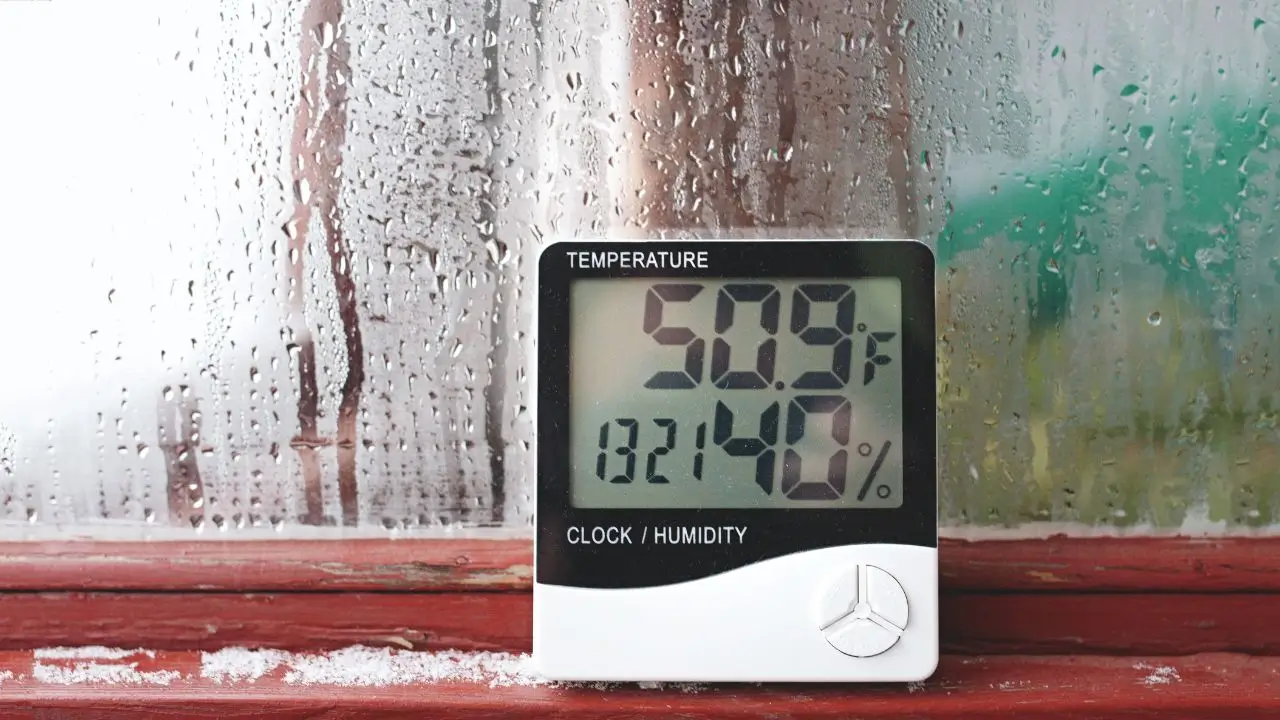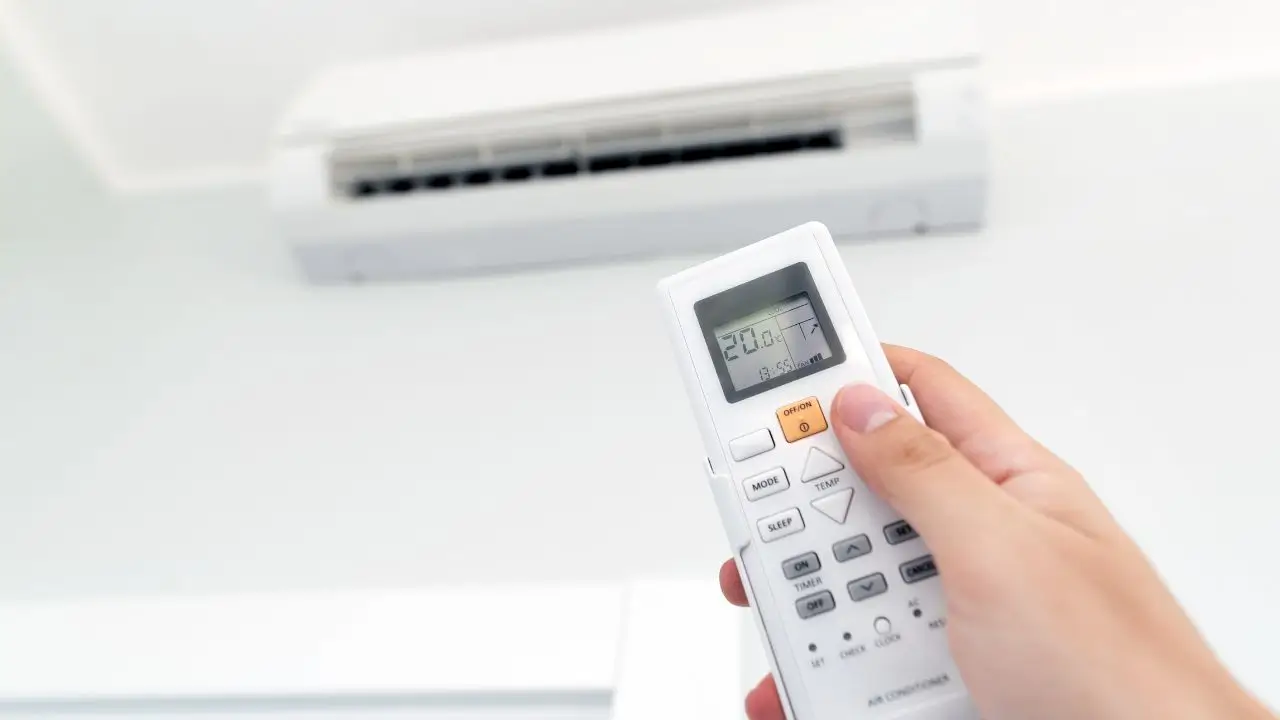Humidity is an inevitable part of life in Florida, particularly in Land O’ Lakes, where hot summers can feel even more unbearable due to the high levels of moisture in the air. For residents, maintaining a cool and comfortable home depends heavily on the efficiency of their air conditioning system. However, many people are unaware that humidity can directly affect their AC’s performance. In this detailed guide, we will explore how humidity impacts air conditioning systems in Land O’ Lakes, the problems it can cause, and solutions to optimize your AC for humid conditions. We are going to learn How Humidity Affects Your Air Conditioning in Land O’ Lakes and the solutions.
Understanding Humidity and Its Role in AC Performance

Before diving into the effects of humidity on air conditioning, it is important to understand what humidity is and how it influences the overall cooling process. Humidity refers to the amount of moisture or water vapor in the air, and it is commonly measured as relative humidity (RH), which represents the percentage of water vapor present compared to the maximum that the air can hold at a given temperature.
Air conditioning systems not only cool the air inside your home but also remove excess moisture, ensuring a comfortable living environment. However, in regions like Land O’ Lakes, where humidity levels can soar, your air conditioner may struggle to keep up. When the air is saturated with moisture, it makes your home feel warmer and can put additional strain on your cooling system, forcing it to work harder.
In summary, humidity directly impacts AC performance by making it more difficult to maintain desired indoor temperatures, reducing cooling efficiency, and increasing energy usage.
Why High Humidity in Land O’ Lakes Poses Challenges for Air Conditioning Systems

Florida, and particularly Land O’ Lakes, is known for its humid climate. High humidity levels can cause several problems for air conditioning systems, which are not designed to handle extreme moisture conditions without assistance. Here are some common challenges that arise when humidity is high:
- Reduced Cooling Efficiency: As humidity levels rise, your AC has to work overtime to remove both the heat and moisture from the air. This dual process often reduces cooling efficiency, causing your home to feel warmer even when the thermostat is set at a lower temperature.
- Longer Cooling Cycles: When the air is saturated with moisture, your air conditioner takes longer to reach the desired temperature. This results in longer cooling cycles, which can strain your system and lead to higher energy consumption.
- Excessive Wear and Tear: Constantly battling high humidity can lead to excess wear and tear on your air conditioner. Over time, this added strain can reduce the lifespan of the system, increasing the likelihood of frequent breakdowns and expensive repairs.
- Increased Energy Costs: Because your AC has to run longer and harder to maintain comfort in a humid environment, your energy bills will naturally increase. Homeowners in humid regions like Land O’ Lakes may notice a significant spike in their utility bills during the summer months when humidity is at its peak.
- Decreased Indoor Air Quality: High humidity levels can encourage the growth of mold, mildew, and dust mites, all of which can negatively impact your indoor air quality. This is especially concerning for individuals with respiratory issues or allergies, as these contaminants can exacerbate their symptoms.
How Humidity Affects Airflow in Your AC System

Another way that humidity impacts your air conditioning system is by affecting the airflow. When the air is excessively moist, it can cause your system’s airflow to become sluggish, reducing the efficiency of the cooling process.
Humidity also affects the evaporator coils, which are responsible for absorbing heat from the air and cooling it down. High humidity levels can cause these coils to become damp or even freeze up, making it harder for the AC system to cool your home. In severe cases, frozen evaporator coils can cause your system to shut down entirely.
Additionally, humidity can lead to issues with your ductwork. If moisture seeps into the ducts, it can create an environment where mold and mildew thrive. This not only affects your AC’s ability to cool your home but also introduces harmful contaminants into the air, lowering indoor air quality.
Signs That Humidity is Affecting Your AC’s Performance
If you’re unsure whether humidity is impacting your air conditioning system, here are some signs to look out for:
- Your Home Feels Warmer Than the Thermostat Reading: If you’ve set your thermostat to a comfortable temperature but still feel sticky and warm, it could be due to high humidity levels. Humid air makes it harder for your AC to cool down your home.
- Your AC is Running Constantly: One of the most common signs that humidity is affecting your AC is if the system seems to be running all the time without cycling off. This can happen because the air conditioner is struggling to remove both heat and moisture, prolonging cooling cycles.
- Increased Energy Bills: As mentioned earlier, when your AC has to work harder to cool your home, it will consume more energy. If you’ve noticed a sudden spike in your energy bills, especially during the humid months, high moisture levels could be the culprit.
- Water Leaks Around the AC Unit: If you start to notice water pooling around your AC unit, it could be a sign that the system is struggling to remove excess moisture. In some cases, the moisture can freeze on the evaporator coils, which later melts and causes leaks.
- Mold or Mildew Growth: High humidity creates the perfect environment for mold and mildew to thrive. If you notice a musty odor in your home or see signs of mold growth near your vents, it’s time to have your AC checked for humidity-related issues.
How to Improve Your AC’s Performance in Humid Conditions
Fortunately, there are several ways to optimize your air conditioning system’s performance in humid conditions, ensuring your home stays cool and comfortable throughout the summer.
- Upgrade to a High-Efficiency System: One of the best ways to combat high humidity is to upgrade to a more energy-efficient air conditioner. Modern units are designed to handle both heat and moisture more effectively, making them a great option for homeowners in Land O’ Lakes.
- Consider Installing a Dehumidifier: A dehumidifier can work in tandem with your AC to remove excess moisture from the air, improving comfort and reducing the load on your air conditioner. Whole-house dehumidifiers are a great option for homes in humid regions like Florida.
- Schedule Regular Maintenance: Routine maintenance is crucial for ensuring your air conditioner runs smoothly, especially in high-humidity environments. A professional tune-up can help identify potential issues before they become major problems, ensuring your system is ready for the summer months.
- Ensure Proper Ventilation: Good ventilation is essential for maintaining healthy indoor air quality and reducing humidity levels. Make sure your home’s vents are clean and free from obstructions, and consider installing exhaust fans in high-moisture areas like kitchens and bathrooms.
- Seal Leaks in Ductwork: Leaky ductwork can allow humid air to enter your home, making it harder for your AC to maintain comfortable temperatures. Sealing any leaks in your ducts can improve airflow and reduce the strain on your air conditioning system.
Choosing the Right Air Conditioning System for Humid Climates
In humid climates like Land O’ Lakes, selecting the right air conditioning system is crucial for maintaining both comfort and efficiency. When shopping for a new AC unit, there are several factors to consider:
- Variable-Speed Compressors: Air conditioners with variable-speed compressors can adjust their output to match the cooling needs of your home. This allows the system to run longer at lower speeds, which improves humidity control and enhances overall efficiency.
- High SEER Ratings: The Seasonal Energy Efficiency Ratio (SEER) measures the efficiency of an air conditioning system. Units with higher SEER ratings are more efficient and better suited to handle the cooling demands of humid climates.
- Dehumidification Features: Some modern AC systems come equipped with built-in dehumidification features that allow them to remove moisture from the air more effectively.
By choosing a system that’s designed for humid environments, you can ensure that your home stays comfortable year-round while also reducing your energy bills and prolonging the life of your air conditioner. We have learnt How Humidity Affects Your Air Conditioning in Land O’ Lakes and some solutions.

